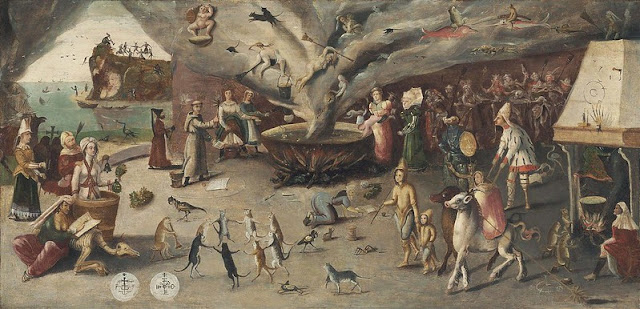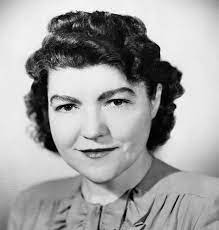In November 1934, "Harper's Magazine" published a first-person account of a ghost-ridden summer cottage, titled, ""Four Months in a Haunted House." The author hid behind the pseudonym "Harlan Jacobs," but it has been verified that the man was exactly who he said he was: an accomplished and well-regarded professor at New York's Columbia University.
Folklorist and historian Louis C. Jones, who heard the story from "Jacobs" himself before the article was published, vouched for the professor's sincerity. Jones described the academic as "a very kind but practical, hard-headed scholar who vouched for the truth of every word of his article. Knowing him, his word was beyond question. Furthermore, he is not a believer in the supernatural in general, nor in ghosts in particular."
You may not believe in ghosts, but ghosts definitely believe in you.
Jacobs did not give the year in which his strange experiences took place, or the exact location. He stated only that the cottage was in a "lonely" location somewhere on Cape Cod. It was a comfortably spacious place, with two large bedrooms on the upper floor, connected by a foyer. Although the house had been built nine years previously, it had sat unoccupied until Jacobs and his wife Helen rented it for the summer. They would be the first people to spend the night there. At the time, they did not stop to wonder why this was the case.
On their first night in the cottage, Helen Jacobs went to bed early, while Harlan stayed up to work on a manuscript. Mrs. Jacobs slept in one of the bedrooms, while her husband did his work in the other. It was a warm night, so all the inner doors were open. Harlan was a bit surprised when his wife suddenly awakened and called to him, "Was it you who made that tapping noise?"
Harlan made a few "jogs" to his writing table, and asked if that was the noise she heard.
"No, no!" she replied. "That's not the sound at all. What I heard was a tapping that seemed to come from the brick walk in front of the door downstairs. It was like somebody tapping on the bricks with a cane. Didn't you hear it?"
Mr. Jacobs reassured his wife that there had been no such sounds--perhaps she had been dreaming, or something of the sort. They both dismissed the matter from their minds.
Around ten o'clock the next night, the Jacobs were sitting in the living room downstairs when they began hearing the taps Helen had described. They were again coming from the brick walk just outside the front door. And, indeed, they sounded exactly like a cane regularly hitting the bricks. Harlan grabbed a flashlight and dashed to the door. However, the instant before he flung it open, the tapping ceased. Jacobs searched outside the house, but saw no sign of anyone, animal or human.
Throughout the summer, the tapping noises on the brick walk kept recurring--Jacobs estimated they heard them at least fifty times. The noises always began around 10 p.m., and all details were invariably the same. In daylight, the couple scrutinized the walkway, but found nothing unusual. Every night just before 10, Harlan would station himself by the front door, ready to pounce, but the tapping would always cease the moment he sprang outside. Little did the couple know that this mystery would soon be upstaged by even weirder events.
By their second week in the cottage, Harlan began noticing some odd things happening in his bedroom. One night, a minute or so after retiring to bed, he heard something--he thought it sounded like a box of matches--falling from the chiffonier. He turned on the light. He saw nothing on the floor. Nothing had fallen from anywhere. On the following night, he heard the distinct sound of a sheet of newspaper being swished across the floor. And when he turned on the light, there was, of course, no newspaper and not the slightest hint of a breeze. On the third night, Harlan was treated to the sounds of a rolling pin falling with a crash on the floor and rolling across the room until it banged against a wall.
Jacobs and his wife began hearing a less intrusive, but more frequent noise. It was one they heard at all hours of the day or night, in all areas of the house. They soon dubbed it, "The Universal Click." By their third week, the couple was hearing very noisy footfalls all over the cottage, at irregular intervals. It was exactly as if someone in heavy boots was making a solid march throughout all the rooms. The most spectacular of the spectral sounds came in the middle of summer. One night, the couple heard a deafening crash coming from the garage. It was so violent, it shook the entire cottage. Within a few seconds of the din, the couple had raced to the garage, expecting to find the entire structure had exploded. Instead, the puzzled pair saw nothing amiss. The room, which they had been using for storage, was in perfect order. The ear-splitting noise--which they called the "Grand Piano Smash" happened several more times during their stay.
One day, Harlan opened the garage to find it was full of moths. When he returned with his wife five minutes later, every one of the insects were gone. It was a well-built concrete and steel structure, kept too tightly closed for the moths to enter or leave.
Harlan and Helen finally admitted to themselves that they were spending their summer vacation with a ghost.
Towards the end of summer, the Jacobs had guests coming over for the weekend: Harlan's lawyer, along with his wife and daughter. Harlan knew the visitors were all hard-headed, practical sorts not given to attacks of nerves, but he felt obligated to warn the family that their visit might not be exactly what they were expecting. It was a waste of time and energy. The lawyer and his womenfolk all laughed at the idea of supernatural disturbances. "For my part," the lawyer scoffed, "I wish to heaven I could hear a little from your precious ghost!"
Such requests seldom go unrewarded. That very night, the women of the household went to see a play, while Harlan and his lawyer worked on a contract Jacobs was to sign. This dry work was considerably enlivened by the sudden sound of a loud "click" in the wall.
"Your friend the Universal Click?" the legal eagle inquired.
"Yes."
"Some little snap in the drying wood," the lawyer shrugged.
About twenty minutes later came the familiar sound of footsteps upstairs, directly over their heads.
"What on earth is that?" the lawyer cried.
"Only the ghost," said Harlan complacently. He was feeling that the spook was finally giving him value for money.
"Ghost your grandmother! There's a man upstairs!"
The two men dashed to the upper floor, where Harlan greatly enjoyed watching his naysaying friend desperately searching the cottage for an intruder that Jacobs knew was not there--at least, in any sort of corporeal form. After inspecting the dwelling from top to bottom, the lawyer finally had to admit defeat. He only advised Jacobs not to say anything about ghosts to his wife or daughter.
The women returned to the cottage soon afterward, and all retired for the night. The lawyer's family bunked in one bedroom, Helen Jacobs took the other, while Harlan slept on a sofa downstairs. The next morning, Harlan could tell just by looking at his guests that their night had not been uneventful.
"What was that awful crash last night?" they demanded. "It sounded like the ceiling falling in the garage."
Harlan was really beginning to enjoy himself. With a wink to his wife, he asked Helen, "Did you hear a crash?"
"Not a sound," she chirped.
The curious thing was, this was the one time when the Jacobs truly did not hear the Grand Piano Smash--but their visitors certainly did.
And with that, Jacobs' story comes to an inconclusive end. Harlan never found a convincing explanation for their experiences during this haunted summer. He and his wife, he noted, were not the sort of people inclined to believe in ghosts. But, he added, "Something strange was loose in that house, and I wish I could discover what it was."
















